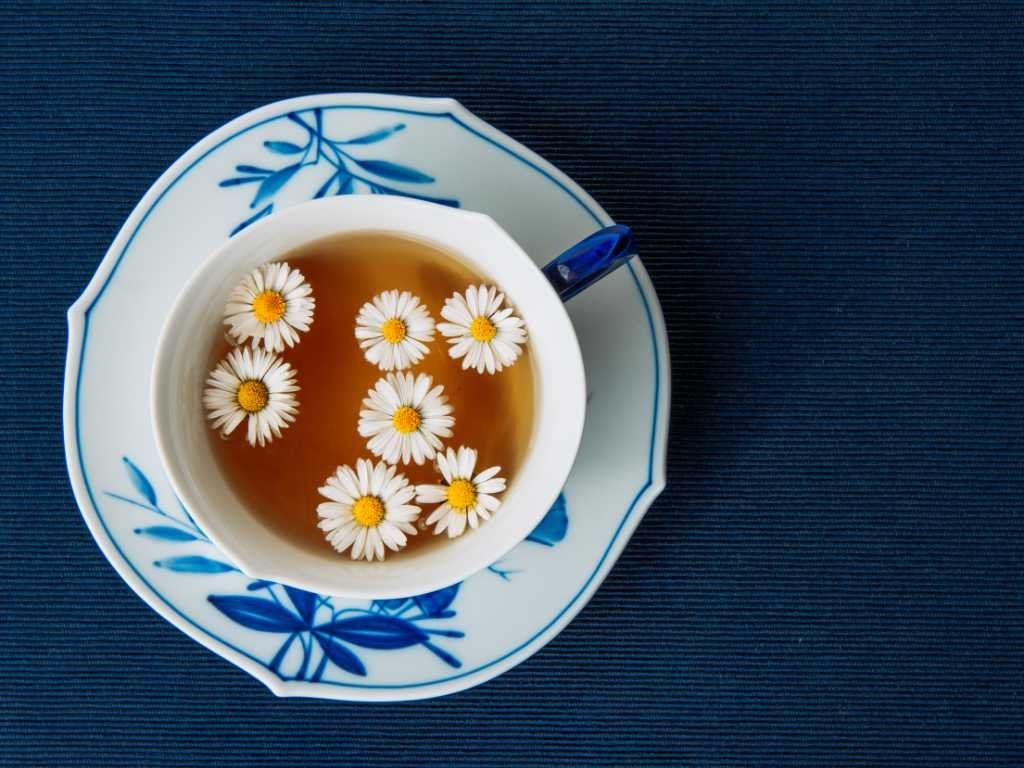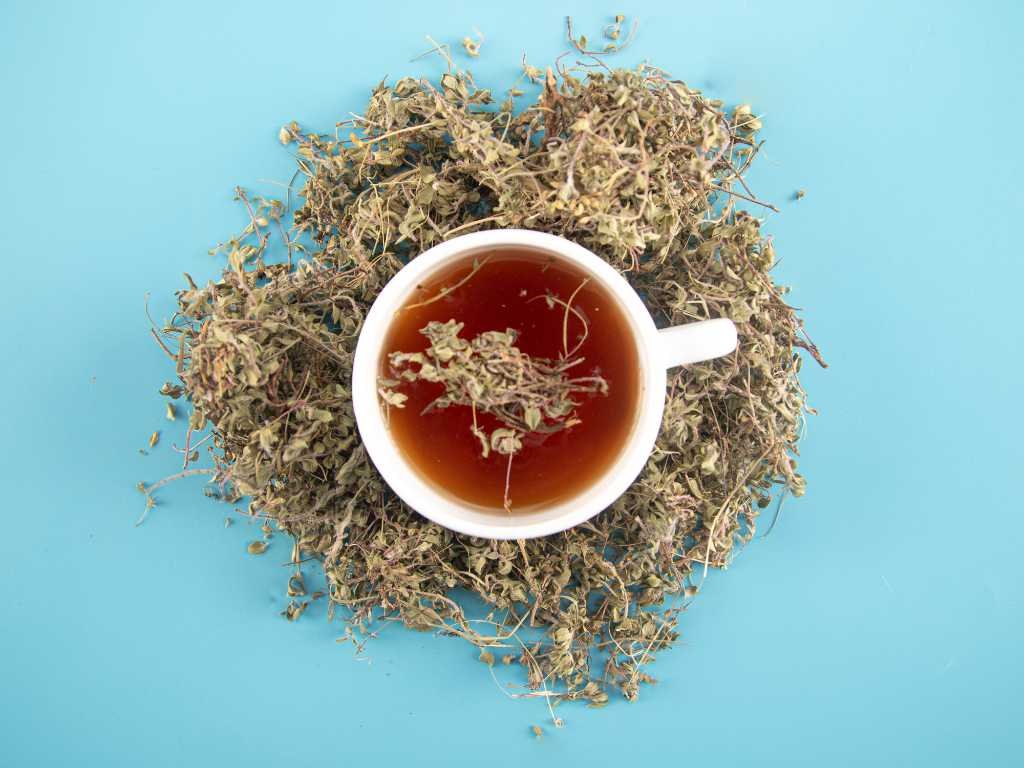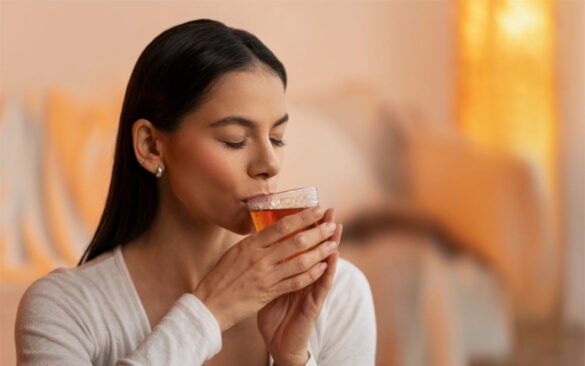Table of Contents
Have you ever found yourself lying awake at 2 AM, your mind racing with worries about tomorrow’s presentation or that awkward conversation from last week? You’re definitely not alone. Millions of people worldwide struggle with anxiety, and while there’s no magic cure, there’s something surprisingly comforting about wrapping your hands around a warm mug of tea and taking that first soothing sip. Teas for anxiety have been used for centuries as natural remedies, and modern science is finally catching up to what our grandmothers knew all along – sometimes the simplest solutions are the most effective.
Understanding Anxiety and Why Natural Solutions Matter
Anxiety isn’t just feeling nervous before a big event – it’s a complex mental health condition that can significantly impact your daily life. When you’re dealing with persistent worry, restlessness, difficulty concentrating, or those frustrating physical symptoms like a racing heart or muscle tension, you’re experiencing what millions of others face every day.
What’s fascinating is how anxiety affects different people in unique ways. Some folks might feel it as butterflies in their stomach, while others experience it as an overwhelming sense of dread or even physical pain. The good news? There’s growing scientific evidence supporting natural approaches to anxiety management, particularly the use of herbal teas.
Unlike prescription medications, herbal teas for anxiety offer a gentler approach with minimal side effects. They work by interacting with your nervous system in subtle but meaningful ways, often helping to increase calming neurotransmitters or reducing stress hormones naturally.
The Science Behind Herbal Teas and Anxiety Relief
Here’s where things get really interesting. When you drink certain herbal teas, you’re not just enjoying a warm beverage – you’re consuming bioactive compounds that can actually influence your brain chemistry. Many anxiety-relieving teas contain things like flavonoids, terpenoids, and other natural compounds that research shows can help promote relaxation.
The ritual itself matters too. Taking time to brew tea, inhaling the aromatic steam, and sitting quietly for a few minutes creates a natural mindfulness practice. This combination of beneficial compounds plus mindful consumption can create a powerful one-two punch against anxiety symptoms.
5 Miraculous Teas for Anxiety Relief
Chamomile Tea: The Gentle Giant of Anxiety Relief

If there’s one tea that deserves the title of “anxiety’s worst enemy,” it’s chamomile tea. This daisy-like flower has been used for thousands of years, and for good reason. The secret weapon here is a compound called apigenin, which binds to the same brain receptors that anti-anxiety medications target – just much more gently.
Clinical studies have shown that people with generalized anxiety disorder who consumed chamomile extract experienced significant symptom reduction. What’s even better? Unlike some medications, chamomile won’t leave you feeling groggy or dependent. You can drink it throughout the day, and it’s particularly effective about an hour before bedtime.
The taste is mild, slightly sweet, and incredibly comforting. If you’re new to herbal anxiety teas, chamomile is the perfect place to start. Pro tip: add a touch of honey and you’ve got yourself a delicious anti-anxiety treat.
Lavender Tea: Aromatherapy in a Cup
Lavender tea is like having a spa day in your kitchen. The purple flowers create a floral, slightly sweet brew that’s been clinically proven to reduce anxiety and depression symptoms. Recent research published in several peer-reviewed journals shows that regular lavender consumption can significantly improve mood and reduce stress markers in the body.
What makes lavender particularly special is its dual action – you get benefits from both drinking it and inhaling its aroma. The linalool and linalyl acetate compounds in lavender work directly on your nervous system, promoting a sense of calm that you can literally feel washing over you.
Some people find pure lavender tea a bit too floral, so don’t hesitate to blend it with other herbs or add a slice of lemon. The key is finding what works for your taste buds because consistency is crucial for seeing anxiety-relief benefits.
Lemon Balm Tea: The Mood Lifter
Don’t let the name fool you – lemon balm tea isn’t actually made from lemons. This member of the mint family has been used since medieval times to “gladden the heart” and ease nervous tension. Modern research backs up these traditional uses, showing that lemon balm can help reduce cortisol levels and promote feelings of calmness.
What’s particularly interesting about lemon balm is its ability to improve mood while reducing anxiety. Many people report feeling not just calmer but also more optimistic after incorporating this tea into their routine. It has a bright, citrusy flavor that’s refreshing without being overwhelming.
The science suggests that lemon balm works by inhibiting an enzyme that breaks down GABA, essentially allowing your brain’s natural calming chemicals to stick around longer. Pretty clever for a simple herb, right?
Passionflower Tea: The Mind Quieter
If your anxiety manifests as a constantly racing mind, passionflower tea might become your new best friend. This climbing vine produces stunning flowers and leaves that have been used traditionally by Native Americans for anxiety and sleep issues.
Research shows that passionflower can be as effective as prescription anxiety medications for some people, but without the side effects. It works by boosting GABA levels in your brain – that’s the neurotransmitter responsible for the “calm down” signals your nervous system sends out.
The taste is mild and slightly grassy, making it easy to drink regularly. Many people find it particularly helpful in the evening when their mind won’t stop churning through the day’s events or tomorrow’s worries.
Valerian Root Tea: Nature’s Powerful Anxiety Fighter
Valerian root tea is often called “nature’s Valium,” and while that’s a bit of an exaggeration, there’s definitely truth to its potent calming effects. This herb has been used for over 2,000 years to treat nervousness, restlessness, and sleep disorders.
However, valerian requires a bit more caution than other teas for anxiety relief. It’s quite potent and can interact with certain medications, particularly those that affect the central nervous system. Always check with your healthcare provider before adding valerian to your routine, especially if you’re taking other medications.
The taste is… well, let’s be honest – it’s pretty earthy and strong. Many people prefer to blend it with other herbs or take it in capsule form. But if you can handle the flavor, the anxiety-relief benefits can be quite impressive.

What Does the Research Actually Say?
When we look at peer-reviewed studies on herbal teas for anxiety, the results are encouraging. A 2016 study in Phytomedicine found that chamomile extract significantly reduced anxiety symptoms in people with generalized anxiety disorder. Similarly, research on lavender showed measurable improvements in anxiety and sleep quality.
However – and this is important – most studies use concentrated extracts rather than tea preparations.
How to Maximize the Anxiety-Relief Benefits
Getting the most out of anxiety-relief teas involves more than just steeping some leaves in hot water. Here are some evidence-based strategies to enhance their effectiveness:
Timing matters. Drink chamomile or passionflower tea about an hour before situations that typically trigger your anxiety. For general anxiety management, consistency is key – aim for 2-3 cups spread throughout the day.
Create a ritual. The act of brewing and mindfully drinking tea can be as beneficial as the herbs themselves. Take five minutes to really focus on the process – the smell, the warmth, the taste. This mini-meditation amplifies the anxiety-reducing effects.
Quality counts. Not all teas are created equal. Look for organic, whole-leaf teas when possible, and check that herbs are properly dried and stored to maintain their potency.
Combining Teas with Other Natural Anxiety Management Strategies
While teas for anxiety can be incredibly helpful on their own, they work even better as part of a comprehensive approach to mental wellness. Consider pairing your tea ritual with other proven anxiety-management techniques.
Regular exercise is one of the most effective natural anxiety treatments available. Even a 10-minute walk can significantly reduce anxiety symptoms. Try having your morning anxiety-relief tea before a gentle yoga session or evening walk.
Breathing exercises pair beautifully with tea drinking. As you sip your chamomile or lavender tea, practice deep, diaphragmatic breathing. This combination can create a powerful relaxation response.
Sleep hygiene is crucial for anxiety management. Many anxiety-relief teas, particularly chamomile and passionflower, can help improve sleep quality. Create an evening routine that includes a warm cup of tea about an hour before bed, along with dimmed lights and limited screen time.
For those interested in expanding their natural wellness toolkit, exploring comprehensive stress management techniques can provide additional strategies for managing anxiety naturally.
Safety Considerations and When to Seek Professional Help
While most herbal teas for anxiety are generally safe, there are some important considerations to keep in mind. Pregnant and breastfeeding women should consult their healthcare provider before using herbal teas medicinally. Some herbs, particularly valerian, can interact with medications or cause drowsiness.
If you’re taking prescription anxiety medications, don’t stop them without medical supervision, even if herbal teas seem to be helping. Instead, discuss with your doctor whether herbal teas could complement your current treatment plan.
Red flags that warrant professional help include anxiety that interferes with daily activities, panic attacks, persistent insomnia, or thoughts of self-harm. Herbal teas are wonderful complementary tools, but they’re not substitutes for professional mental health treatment when it’s needed.
Personal Stories and Real-World Experiences

Sarah, a 34-year-old marketing manager, started drinking chamomile tea during her particularly stressful divorce proceedings. “I was skeptical at first,” she says, “but after a week of having chamomile tea every evening, I noticed I was sleeping better and feeling less on edge during the day. It wasn’t a miracle cure, but it definitely took the edge off.”
Mark, who struggles with social anxiety, found that drinking lemon balm tea before social gatherings helped him feel more relaxed and confident. “It’s not like taking a pill,” he explains, “but it gives me this subtle sense of calm that makes social situations more manageable.”
These personal experiences echo what research suggests – teas for anxiety work best when used consistently and as part of a broader approach to mental wellness.
Frequently Asked Questions About Anxiety-Relief Teas
How quickly do anxiety-relief teas work?
Most people notice some immediate relaxation from the warm liquid and ritual, but the herb-specific effects typically kick in within 30-60 minutes. For long-term anxiety management, consistent use over several weeks usually provides the best results.
Can I drink anxiety-relief teas while taking anxiety medication?
Always consult your healthcare provider first. While most herbal teas are safe to combine with medications, some herbs like valerian can interact with certain drugs or enhance their effects.
How many cups per day is safe?
For most anxiety-relief teas, 2-4 cups per day is considered safe for healthy adults. However, start with one cup and see how your body responds before increasing intake.
Are there any side effects?
Side effects are rare with properly used herbal teas. Some people might experience mild digestive upset or drowsiness, particularly with valerian or passionflower. If you experience any concerning symptoms, discontinue use and consult a healthcare provider.
Can children drink anxiety-relief teas?
While mild chamomile tea is generally safe for children, it’s best to consult a pediatrician before giving any herbal remedies to children, especially for anxiety management.
Making Tea Selection Personal
The best tea for anxiety relief is ultimately the one you’ll actually drink consistently. Some people love the floral notes of lavender, while others prefer the mild, honey-like taste of chamomile. Don’t be afraid to experiment with blends or add natural flavorings like honey, lemon, or mint.
Consider keeping a simple tea journal for the first few weeks. Note which teas you enjoy most, when you drink them, and how they make you feel. This can help you identify patterns and optimize your personal anxiety-relief tea routine.
The Broader Picture of Natural Mental Health
Herbal teas for anxiety represent just one piece of the natural mental health puzzle. They work particularly well when combined with other evidence-based approaches like regular exercise, adequate sleep, proper nutrition, and stress management techniques.
If you’re interested in exploring other natural approaches to mental wellness, consider looking into natural anxiety management strategies that can complement your tea routine.
Remember, managing anxiety naturally isn’t about finding one perfect solution – it’s about building a toolkit of strategies that work together to support your mental health and overall wellbeing.
The journey to better mental health is deeply personal, and what works for one person might not work for another. Teas for anxiety offer a gentle, accessible starting point that has helped countless people find moments of calm in their busy lives. Whether you’re dealing with occasional stress or persistent anxiety, these time-tested herbal remedies might just provide the natural relief you’ve been searching for.
Start small, be consistent, and most importantly, be patient with yourself as you discover which anxiety-relief teas work best for your unique needs. Sometimes the most profound changes come from the simplest practices, and there’s something beautifully therapeutic about taking a few minutes each day to breathe, sip, and simply be present with yourself.


